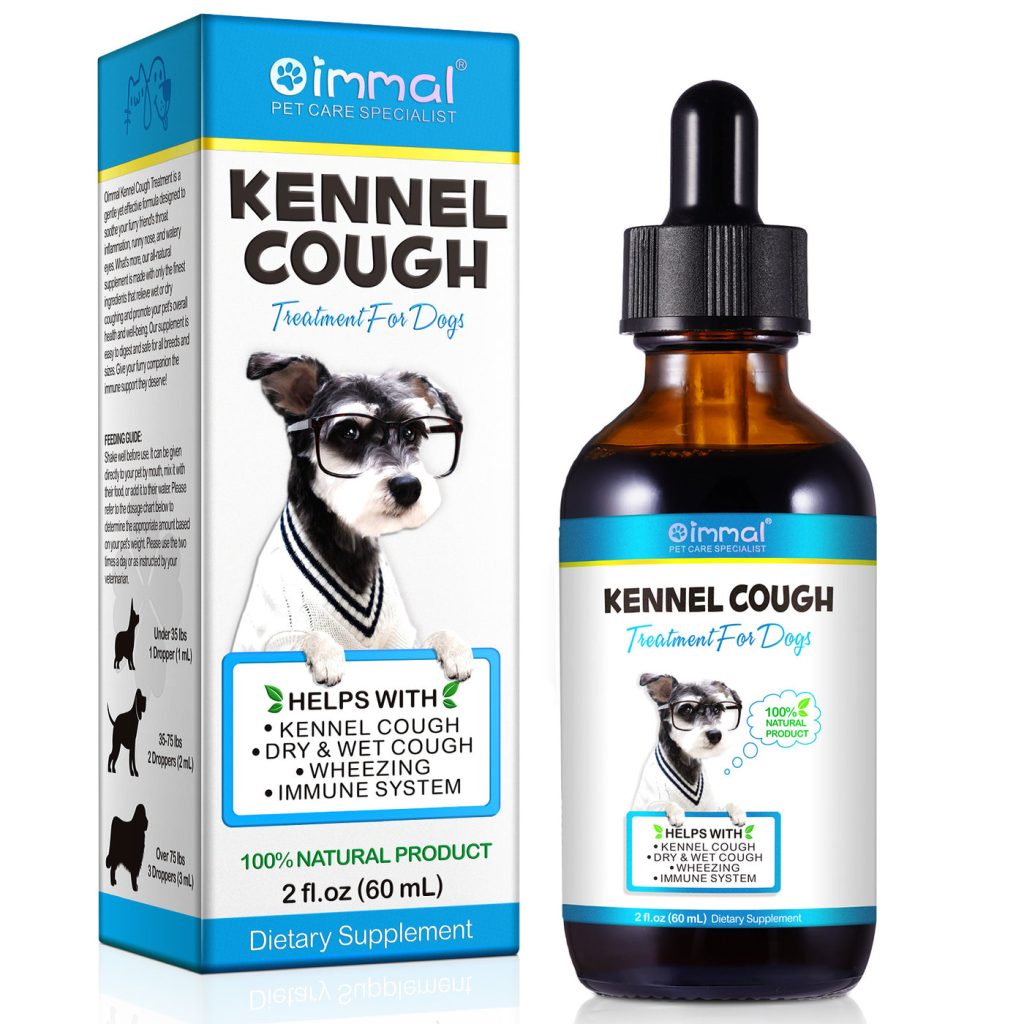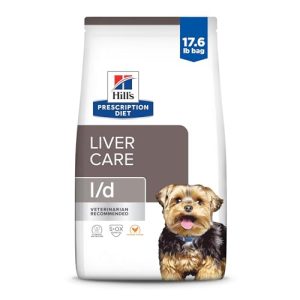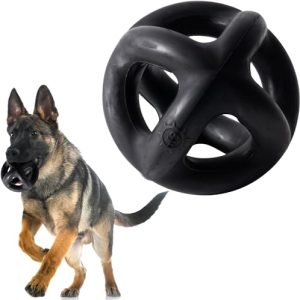If your dog is coughing and seems uncomfortable, you might be dealing with kennel cough. It’s a common but contagious condition that can spread quickly among dogs.
You want your furry friend to feel better fast, but knowing how to treat kennel cough properly is key. You’ll discover simple, effective steps to help your dog recover and avoid complications. Keep reading to learn exactly what you can do to ease your dog’s cough and protect their health.

Credit: infrakraft.com
Symptoms Of Kennel Cough
Recognizing the symptoms of kennel cough is important for early care. This contagious respiratory illness affects many dogs, especially those in close contact with others. Symptoms often appear suddenly and can vary in severity. Knowing what to look for helps prevent spreading and ensures your dog gets the right treatment quickly.
Common Signs To Watch For
- A strong, dry cough that sounds like a honking goose
- Frequent coughing fits, especially after exercise or excitement
- Retching or gagging, sometimes bringing up white mucus
- Runny nose with clear or slightly cloudy discharge
- Sneezing and mild eye discharge
- Loss of appetite or slight lethargy in some cases
- Low-grade fever, though often not present
When To See A Vet
Visit the vet if coughing lasts more than two weeks. Seek help if your dog shows difficulty breathing or bluish gums. Immediate care is necessary when your dog refuses to eat or drink. Also, see a vet if coughing worsens or if there is bloody mucus. Puppies, elderly dogs, and those with weak immune systems need prompt attention.
Causes And Transmission
Dog kennel cough is a common illness that affects many dogs. Understanding its causes and how it spreads helps protect your pet. This infection mainly targets the dog’s respiratory system. It causes coughing and discomfort but is rarely life-threatening.
How Dogs Catch Kennel Cough
Kennel cough spreads through bacteria and viruses. These germs enter a dog’s nose, mouth, or eyes. Dogs often catch it by:
- Breathing in air with infected droplets
- Direct contact with a sick dog
- Touching contaminated surfaces like water bowls or toys
The bacteria Bordetella bronchiseptica is a common cause. Viruses like canine parainfluenza also play a role. Once infected, dogs can spread germs even before symptoms appear.
Risk Factors And Environments
Certain places and situations increase the risk of kennel cough. These include:
- Dog parks with many pets close together
- Animal shelters and boarding facilities
- Daycare centers for dogs
- Grooming salons with high dog traffic
Stress and poor ventilation in these areas help germs spread. Puppies, older dogs, and pets with weak immune systems face higher risk. Crowded and unclean places make infections more common.
Home Remedies For Relief
Home remedies can help ease your dog’s kennel cough symptoms. These remedies support your pet’s comfort and recovery at home. They reduce coughing and soothe irritation naturally. Simple care steps often make a big difference.
Comfort Measures
- Keep your dog in a warm, quiet place to rest.
- Use a soft bed to support easy breathing and comfort.
- Limit exercise to prevent extra strain on the lungs.
- Provide plenty of fresh water to keep your dog hydrated.
- Use a humidifier or sit with your dog in a steamy bathroom to ease throat irritation.
- Avoid smoky or dusty areas that could worsen coughing.
Natural Soothers
- Honey can calm your dog’s throat. Give a small amount mixed in food or water.
- Chicken broth warms and hydrates without added salt or spices.
- Ginger has natural anti-inflammatory properties. Small doses may reduce coughing.
- Chamomile tea (cooled) can act as a gentle throat soother. Offer in small amounts.
- Coconut oil supports the immune system and soothes the throat. Add a teaspoon to meals.

Credit: www.amazon.com
Medical Treatments
Medical treatments play a crucial role in managing dog kennel cough, especially when symptoms become severe or persistent. While many dogs recover with rest and supportive care, certain medications can help reduce discomfort and prevent complications. Understanding the right medical options empowers you to make informed decisions for your dog’s health.
Antibiotics And Cough Suppressants
Antibiotics are often prescribed if your vet suspects a bacterial infection alongside kennel cough. They target harmful bacteria and help speed up recovery, but they don’t work against the virus causing kennel cough itself. Using antibiotics correctly is important to avoid resistance and ensure your dog gets the full benefit.
Cough suppressants can provide relief when your dog’s cough is dry and irritating. These medications help calm the cough reflex, allowing your dog to rest better. However, suppressants should be used carefully, as coughing helps clear mucus and bacteria from the lungs.
Have you noticed your dog’s cough worsening at night? Discussing cough suppressant options with your vet can make a big difference in your pet’s comfort.
When Medication Is Necessary
Not every case of kennel cough requires medication. Mild symptoms often improve with rest, hydration, and a stress-free environment. But you should consider medication if your dog shows:
- Persistent or worsening cough lasting more than two weeks
- Difficulty breathing or rapid breathing
- High fever or lethargy
- Loss of appetite or signs of pain
If your dog belongs to a breed prone to respiratory issues or has a weakened immune system, early medical intervention might be necessary. Always consult your vet before giving any medication, even over-the-counter options. Are you ready to ask the right questions to protect your furry friend?
Preventing Kennel Cough
Preventing kennel cough is key to keeping your dog happy and healthy. It’s easier to stop the infection before it starts than to deal with the tough coughing and vet visits later. You have practical tools at your disposal to reduce your dog’s risk and protect their well-being every day.
Vaccination Options
Vaccines are your dog’s first line of defense against kennel cough. There are injectable and intranasal vaccines available, each offering different levels of protection. The intranasal vaccine works faster and may be better if your dog is around many other dogs often.
Talk with your vet about what fits your dog’s lifestyle best. For example, dogs that attend daycare or go to grooming salons regularly benefit most from the intranasal option. Remember, vaccines aren’t a 100% guarantee but they significantly reduce the chance and severity of infection.
Reducing Exposure Risks
Limiting your dog’s contact with infected dogs is a practical way to cut down risk. Watch out for places like dog parks or boarding kennels where outbreaks can happen quickly. You don’t have to avoid these places entirely, but being selective and cautious helps.
Keep your dog’s environment clean and dry. Simple habits like washing your dog’s bedding and bowls regularly can stop germs from spreading. Also, if your dog shows any signs of coughing or sneezing, keep them away from other dogs until they recover.
Have you noticed how some dogs seem to catch coughs more often than others? Think about what you can adjust in your dog’s daily routine to lower their chances. Small changes can make a big difference in preventing kennel cough.
Caring For Your Dog During Recovery
Caring for your dog during recovery from kennel cough is crucial. Proper care helps your dog heal faster and feel better. Pay attention to their needs and comfort. This support reduces stress and prevents spreading the illness.
Rest And Isolation
Rest is vital for your dog’s recovery. Provide a quiet, comfortable space away from noise and activity. Avoid walks or playtime until your vet says it’s safe. Isolation prevents other pets from catching the infection. Limit visitors and keep your dog in a separate room. Use soft bedding to keep them cozy. Check on your dog often to offer comfort and reassurance.
Nutrition And Hydration Tips
Good nutrition supports your dog’s immune system. Offer easy-to-digest foods, like boiled chicken and rice. Keep meals small and frequent to encourage eating. Fresh water should always be available to prevent dehydration. Warm water or broth can entice drinking. Avoid treats or heavy foods that upset the stomach. Monitor your dog’s appetite and contact a vet if they refuse food.

Credit: www.amazon.com
Frequently Asked Questions
What Are The Symptoms Of Kennel Cough In Dogs?
Kennel cough symptoms include a persistent dry cough, sneezing, runny nose, and lethargy. Some dogs may also experience a mild fever and decreased appetite. It’s important to monitor your dog’s symptoms closely. If they worsen or persist, consult a veterinarian for further evaluation and appropriate treatment options.
How Is Kennel Cough Diagnosed By A Vet?
A veterinarian diagnoses kennel cough through a physical examination and medical history review. They may also recommend tests like chest X-rays or blood tests. These help rule out other respiratory issues. Early diagnosis is crucial for effective treatment and preventing the spread to other dogs.
Can Kennel Cough Be Treated At Home?
Mild cases of kennel cough can be managed at home with rest, hydration, and a humidifier. Ensure your dog avoids irritants like smoke and dust. Consult your vet for advice on over-the-counter cough suppressants. If symptoms persist or worsen, seek veterinary care promptly for further treatment options.
How Long Does Kennel Cough Last In Dogs?
Kennel cough typically lasts one to three weeks in dogs, depending on the severity and treatment. With proper care, most dogs recover without complications. Ensure your dog gets plenty of rest and maintains a healthy diet. Consult your vet if symptoms persist beyond three weeks or worsen.
Conclusion
Treating dog kennel cough takes patience and care. Keep your dog calm and give medicine as the vet says. Make sure your dog drinks water and rests well. Watch for any signs that the cough gets worse. Avoid crowded places to stop spreading the cough.
Clean your dog’s bedding and toys often. Early treatment helps your dog feel better fast. Stay alert and act quickly for a healthy, happy dog.

Emily Barker is the founder of ChillDogLife.com, a space dedicated to helping pup parents discover the best dog products, lifestyle tips, and cozy ideas for happier homes.
A lifelong dog lover, Emily combines her passion for pets with a knack for research to share trusted recommendations on everything from toys and furniture to health and everyday care.
Her goal is simple: to make life easier, stylish, and more joyful for dogs and the people who love them.







